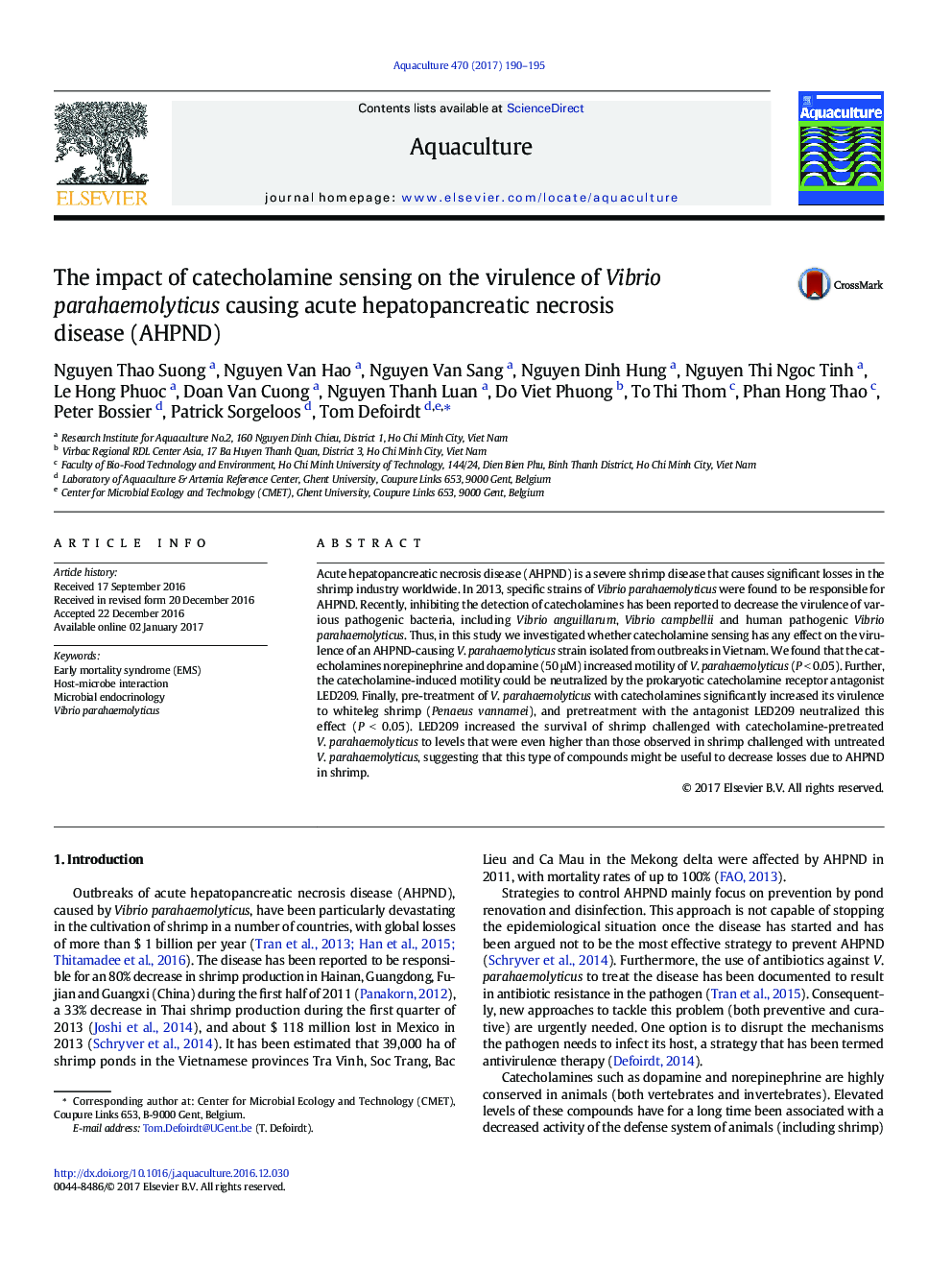| Article ID | Journal | Published Year | Pages | File Type |
|---|---|---|---|---|
| 5539356 | Aquaculture | 2017 | 6 Pages |
Abstract
Acute hepatopancreatic necrosis disease (AHPND) is a severe shrimp disease that causes significant losses in the shrimp industry worldwide. In 2013, specific strains of Vibrio parahaemolyticus were found to be responsible for AHPND. Recently, inhibiting the detection of catecholamines has been reported to decrease the virulence of various pathogenic bacteria, including Vibrio anguillarum, Vibrio campbellii and human pathogenic Vibrio parahaemolyticus. Thus, in this study we investigated whether catecholamine sensing has any effect on the virulence of an AHPND-causing V. parahaemolyticus strain isolated from outbreaks in Vietnam. We found that the catecholamines norepinephrine and dopamine (50 μM) increased motility of V. parahaemolyticus (P < 0.05). Further, the catecholamine-induced motility could be neutralized by the prokaryotic catecholamine receptor antagonist LED209. Finally, pre-treatment of V. parahaemolyticus with catecholamines significantly increased its virulence to whiteleg shrimp (Penaeus vannamei), and pretreatment with the antagonist LED209 neutralized this effect (P < 0.05). LED209 increased the survival of shrimp challenged with catecholamine-pretreated V. parahaemolyticus to levels that were even higher than those observed in shrimp challenged with untreated V. parahaemolyticus, suggesting that this type of compounds might be useful to decrease losses due to AHPND in shrimp.
Related Topics
Life Sciences
Agricultural and Biological Sciences
Aquatic Science
Authors
Nguyen Thao Suong, Nguyen Van Hao, Nguyen Van Sang, Nguyen Dinh Hung, Nguyen Thi Ngoc Tinh, Le Hong Phuoc, Doan Van Cuong, Nguyen Thanh Luan, Do Viet Phuong, To Thi Thom, Phan Hong Thao, Peter Bossier, Patrick Sorgeloos, Tom Defoirdt,
